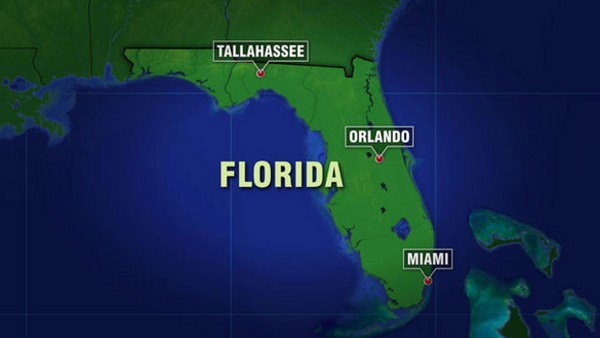“Best. State. Ever.: A Florida Man Defends his Homeland” (G.P. Putnam’s Sons), by Dave Barry
Humorist Dave Barry has made a career of writing about the wackier aspects of life, and especially many offbeat aspects of living in Florida.
His latest book is a step toward repaying that debt after a career of feasting off the absurdities of life in the Sunshine State.
As Barry puts it: “If states were characters on `Seinfeld,’ Florida would be Kramer: Every time it appears, the audience automatically laughs, knowing it’s going to do some idiot thing.”
Barry’s theory on when Florida became a national laughingstock (developed with no research whatsoever, according to Barry) is that it came at the time of the 2000 presidential election, which remained in limbo for weeks as the lead changed hands between George W. Bush and Al Gore during a recount under a relentless media spotlight.
As Barry describes it: “This gruesomely unflattering coverage ran nonstop, day after hellish day. It finally ended when the U.S. Supreme Court ruled, in a 7-2 decision, that Florida should be given back to Spain.”
Chances are certain that a more thorough examination of Florida’s history of zany behavior would show it goes back much further.
But the popularity of nonstop cable news and now social media has made it much easier to keep track of Florida’s nutty antics. Barry notes the popular Twitter account “Florida Man, which consists entirely of links to news items about Florida men doing stupid things.”
He offers the theory on why there are “so many stupid people in Florida” — a state surrounded on three sides by water. “People come down here all the time. Most of them, sooner or later, decide to leave, but the stupid ones can’t figure out how to do this. So they remain, and in time are issued ballots,” he writes.
He recounts some of the weirder Florida stories, including the case of the woman who crashed her car on the Overseas Highway to Key West a few years ago when driving while she was shaving her privates. She had her ex-husband steering while she shaved her “bikini area.” This arrangement ended when the daring couple’s car collided with a car in front of them slowing down to make a turn, causing minor injuries.
Barry chronicles a series of laugh-out-loud examples of Florida insanity, then shifts to a distinctly different mood, sentimental and almost melancholy — taking a longer look at various locations that offer a glimpse of the unique flavors of Florida. This portion of the book feels more like a leisurely drive on Florida backroads with Barry as tour guide to see attractions dating from an earlier time — a reminder of Florida’s charm.
Those stops include classic Florida roadside tourist attractions like Weeki Wachee, the City of Mermaids, as well as Spongeorama and the ghost town of Cassadaga, nicknamed the “Psychic Capital of the World.” Barry provides history and introduces colorful characters from each. He includes a section on Key West, “the most flamboyant, decadent, debauched and pungent place in Florida.”
Perhaps the most memorable side trip is his trek into the Everglades in search of “the skunk ape,” Florida’s version of Bigfoot.
“It is said to walk erect, like a man, but its body is covered with hair, like an ape, or the cast of Duck Dynasty,” he writes of the elusive skunk ape. His search takes him to the “Skunk-Ape Research Headquarters,” which looks suspiciously like a palm-fronded Tiki bar in a campground in the town of Ochopee, which also has a restaurant and a post office.
He tells of meeting Dave Shealy, the 50-something Glades resident who created the “Skunk-Ape Research Headquarters” and never tires of regaling visitors with stories of various skunk ape sightings and the latest on “skunk ape research.”
“For the record,” Barry writes, “I don’t think the skunk ape is real.” But he admires Shealy’s efforts to preserve the legend.
“… I think he’s a survivor. I actually think he’s done a pretty wonderful thing, out there in the swamp, keeping Ochopee on the map,” Barry writes. He acknowledges the Skunk-Ape facility, like many memorable sights in Florida, will eventually fade at some point to “just another ghost attraction.”
As Barry was driving back along the spectacular Overseas Highway from his “research” trip to Key West, he reflected on how he feels about the state that helped feed a steady stream of material for his successful career as a humorist:
“I love this crazy state,” he writes. His book seemed like an attempt to capture distinctive parts of Florida that are gradually disappearing.
Will Lester, a political writer for The Associated Press in Florida and Washington for a dozen years, is now a desk editor in the AP’s Washington bureau.
Copyright 2024 The Associated Press. All rights reserved. This material may not be published, broadcast, rewritten or redistributed.

